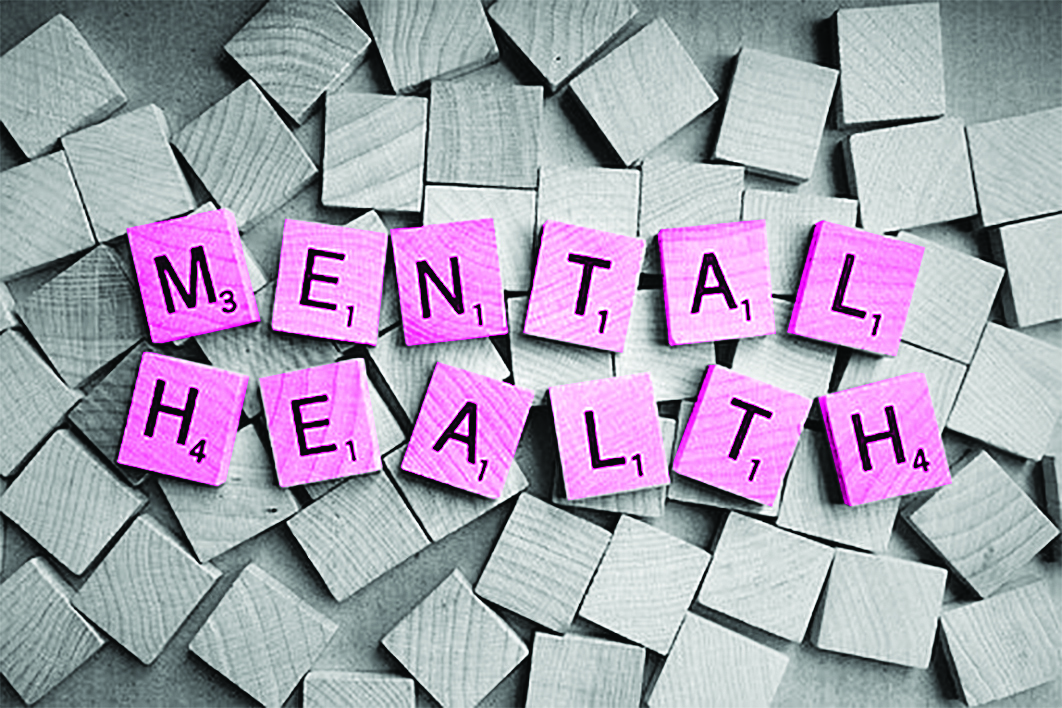By: Samantha Lowe
Asking for help. Why is it so hard? Why are we so afraid when we need to do it? Is it our society? Is it human nature? Whether you live with mental illness or not, there’s a lot of pressure in our society to “pull up our bootstraps” and fend for ourselves. But all of us need help sometimes. And if we didn’t have any help at all…well think about all things you’ve done in life that you couldn’t have accomplished without help. Think about how far you’ve come because of the help you have received from others and then think about how far others have gone because of your help. It’s a beautiful full circle moment when you realize how connected we all are.
Why then does this idea seem to stop at mental illness? Why does “you need help,” suddenly become a threat when someone is at their most vulnerable point? I’m very open about my mental health journey because of this. I want those with mental illness to hear my story and feel less alone. And I want those without mental illness to see this experience normalized. Because the fact of the matter is that it is so normal. Experiencing a mental illness is just as normal as a physical one. The National Institute of Health estimates that over 21% of U.S. adults live with a mental illness. When you think about how many people are hiding their symptoms out of fear or shame, the number is probably a lot higher.
If you’re reading this and you think you might be a part of that statistic, this is me telling you, it’s not your fault and it’s okay if you think you need help. I can almost guarantee that you do—that’s not a threat or an insult. It’s an honest fact that there are resources out there, professionals who understand what you’re going through.
I’ve had to ask for help many times. Especially during my time with the Library. Particularly, I’m thinking about when I went out on medical leave to go to Dialectical Behavior Therapy. I had been in therapy for years but wasn’t really getting very far. My therapist suggested DBT as something totally different and going in I didn’t really understand what I was getting into. I was desperately hopeful though, so I went for it.
The thing about DBT is, you can’t work full-time. DBT is 10 hours a week of intensive out-patient therapy. The first thing they tell you is, “you’re not going to work.” I wasn’t going to get away with keeping this a secret. I had to ask for help.
I didn’t want to go to my boss. I didn’t want to tell him I was sick and suffering and needed intensive treatment. For context, we barely knew each other. His position was newly created, and folks were getting shuffled around between supervisors, and I was
interviewing for my current position. We ended up on the same team, but didn’t know one another very well. I could see he was friendly and fair, but I wasn’t too keen on telling him I was severely mentally ill.
Eventually, probably sweaty and trembling, I went to his office to spill the beans. At the time I was diagnosed with Generalized Anxiety and ADHD. I explained that I was barely keeping it together at work and that at home I was completely falling apart. I avoided gruesome details, much as I am here, but he got the gist. “Well, that’s fine, I thought you were quitting.” His relief surprised me. “I’ve spent a month in the woods with troubled teens. They’re different sure, you’re an adult, but you can tell me most things without scaring me.”
Let me tell you, it was not what I expected. My anxiety was telling me he’d be disappointed, that I was needed on the team, and that he wouldn’t approve the time off. Instead, he said, “Do what you need to. We’ll hold it down and everything will be here when you get back.”
I ended up working twice a week on non-DBT days, so I could spread out my FMLA and stay somewhat in the loop around the Library. I told my team. That was scarier than my boss. I told them exactly where I was going and why and I set boundaries around my availability. They were mostly just…quiet. I went on to say that I was telling them so that none of them would ever feel like they had to hide their struggles. I told them because, “if I was going to physical therapy no one would bat an eye.” I told them because I needed their help too. A couple of them thanked me after. Most didn’t say much, but I was relieved that everything was out on the table and that I was going to get the help I needed.
DBT didn’t end up curing me, but it changed my life for the better. I learned dozens of skills for managing stress and coping with emotions. I was diagnosed with a common personality disorder, which sounds awful, but is actually very hopeful. The thing about the condition I have is that, while it’s curable, it’s got to come from within myself. Medicine can help with symptoms; however, there’s no surgery to go in and get the illness out. I had to train new parts of my brain to do things completely differently from how I always had. It’s about learning to love myself and accept what’s around me. It’s about taking responsibility for that which I can control and letting go of the rest. The word “dialectical” refers to two opposing facts which can both be true. You love me, and you hurt me. I am strong and I am vulnerable. The therapists at DBT encourage us to say ‘and’ instead of ‘but’ to illustrate the grey areas in life. I’ve worked really hard to get where I am, and I needed help to get here. Neither discounts the other.
If you’re reading this and think you need help, the Library is in your corner. We have books to help you with your mental health journey, health databases with accurate information that don’t exaggerate symptoms, and a friendly staff that can point you towards community
resources. If nothing else, we’re a friendly place where you don’t need to spend money to hang out and you can know you’re safe. No, our staff aren’t therapists, but we work hard to create spaces where you can just be you. This is your place to belong, especially when you need help.

